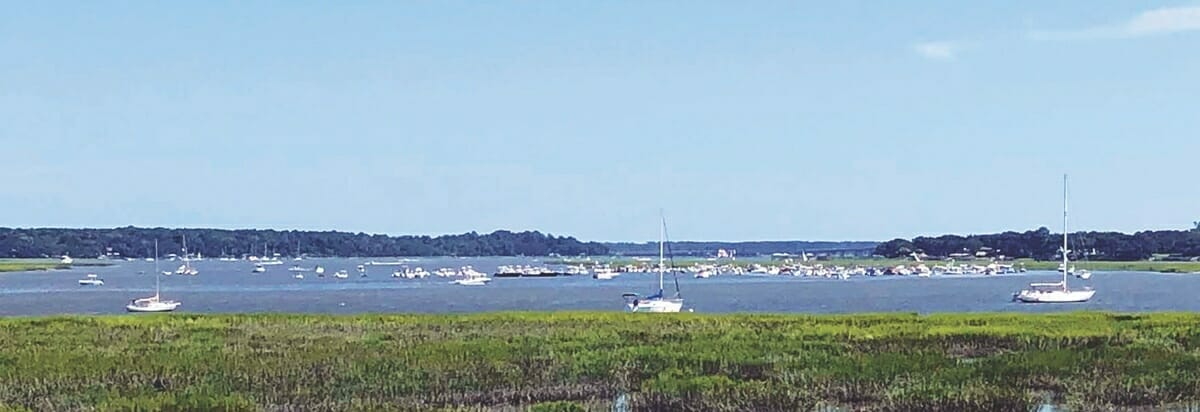Please leave Bay Point alone
… A rebuttal to the most recent (July 16) letter from Josh Tiller regarding the proposed development of Bay Point Island: It is hard to understand how undertaking any kind of commercial development on an already fragile, constantly shifting, and ultimately disappearing spit of land can be in any way “sustainable.”
Words are being finely parsed here, but the end result will be that Bay Point Island will be permanently damaged and/or outright destroyed by trying to do any building on it. The most responsible action we can take is to protect the island as best we can from any human intrusion/encroachment until Mother Nature totally reclaims her.
Please leave Bay Point Island alone, and find a more suitable location for this proposed development project.
– Mike Bogle, Beaufort
In support of the Bay Point project
As a Professional Engineer with more than 25 years of experience in projects spanning from the Caribbean to New York, I have been exposed to many philosophies of development with varying degrees of sustainability, resilience, and green development.
I am writing in support of the Bay Point Island ecotourism project as a cutting edge sustainable, green proposal. The project embraces and includes low-impact design and construction, and long-term operation.
My specific areas of expertise in association with this development include the stormwater management, water supply, and sanitary sewer systems.
The stormwater management facilities will be designed to meet or exceed the requirements of Beaufort County’s Stormwater Best Management Practices and will fully manage and mitigate the rate of runoff, water quality, and water volume as dictated by these documents and appropriate DHEC and EPA regulations.
The sanitary sewer needs for the site will be met using state-of-the-art decentralized treatment in the form of a sequencing batch reactor, or similar central treatment plant. These types of plants are used in similar locations in the Lowcountry as well as throughout the U.S.
Wastewater will be treated to near drinking water quality prior to being discharged to either a land application or to holding tanks for non-potable reuse.
Finally, the water supply will be provided by a deep well, with the water being treated by a state- of-the-art reverse osmosis system to bring it to drinking water standards. Rainwater also can be treated for use as potable water, which is the primary way water is supplied in many areas of the Caribbean, as well as some areas of Texas and Arizona.
When this project is completed, it will serve as an example of sustainability and eco-friendly design and development.
– Joseph A. Mina
Mina is a professional engineer with Rettew, based in Mechanicsburg, Pa. He is registered in South Carolina, Pennsylvania, Georgia, Florida, Delaware, Maryland, New Jersey, New York and the U.S. Virgin Islands.


